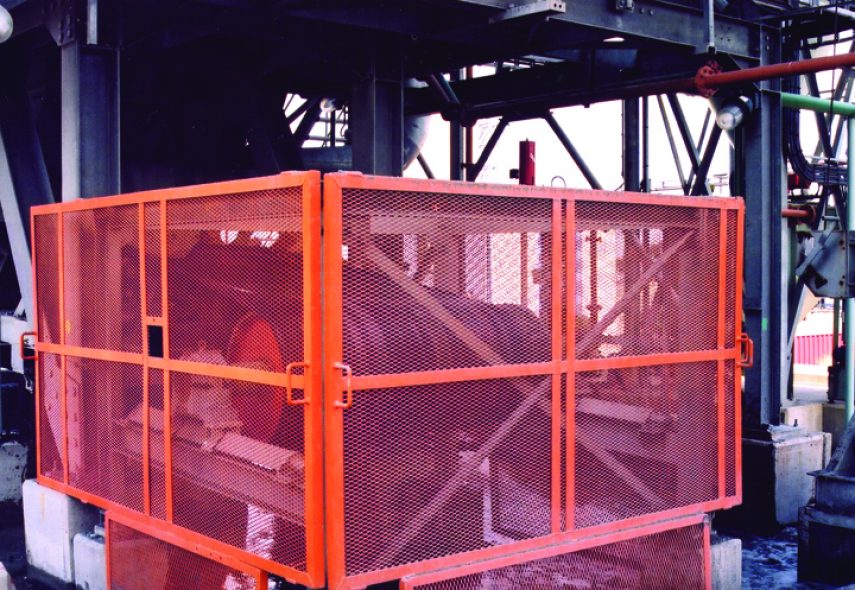ON-site safety remains a major focus for all industries, petrochemicals included. While slips, trips and falls can be attributed to a number of factors, inadequately designed and manufactured walkways remain a primary contributor to on-site accidents.
That’s according to Lance Quinlan, national technical sales consultant at Andrew Mentis, who said organisations need to make it their business to determine whether the walkway products they are using are manufactured from high quality, application-specific material.
“The same level of emphasis on safety also applies to the use of expanded metal for guardrails and protection cages, filter and machine motor covers, lift side walls and ladder rungs,” he said.
“There are questions one should ask of an expanded metal supplier before committing to the installation of these products. Firstly, does the product comply with the requisite SABS standards? Secondly, does the supplier manufacture products in accordance with ISO quality standards? Another telling factor is if, on visual inspection, there are cracks between the knuckles or if the strands appear too thin.”
Quinlan said his company regularly submits expanded metal samples to the SABS and its manufacturing facility is audited every six months to maintain current certification to verify that their expanded metal products meet the criteria for shortway, thickness and bendability.
“Andrew Mentis has built its reputation over the past 65 plus years for designing and developing products that are suited to the varying demands of the local market. In all instances we subject our product to extremely stringent testing to ensure it is capable of withstanding specified loads without losing its structural integrity.”
After pioneering expanded metal products in South Africa, Andrew Mentis has built up a large database of intellectual property and applications experience. The result is a portfolio of products all centred on quality and safety.
Expanded metal meshes are produced by cold-stretching and flattening solid sheets. Even though the original sheet of metal can be expanded by up to ten times its original size, there is absolutely no loss of material during the manufacturing process. This results in a mesh that is considerably lighter than the equivalent area of steel plate.
“In addition, expanded mesh never unravels. When the metal is over-expanded, the strands become narrower, the spaces between strands increase and the strength of the knuckle centres in the mesh is diminished.”
The expansion process results in a network of rigid strands which add strength, while simultaneously allowing free passage of light and air. As the metal is expanded to an area longer than its original length it is lighter than the original equivalent mass used prior to expanding.
he raised mesh, or Mentex, can be put through an additional process in which the raised meshes are flattened into the same plane as the sheet of metal expanded, resulting in Flatex.
“Typically, both Mentex and Flatex are manufactured from high quality local mild steel, but can also be manufactured from any other ductile metal. We supply the product unpainted but any of the normal finishing processes such as painting, stove enamelling, plating and galvanising can be readily applied to it,” Quinlan said.
A comprehensive range of sizes, mesh sizes and thicknesses is available and the mesh can be bent, shaped to radii, angled or notched while still maintaining its inherent rigidity. Sizes range from mini meshes, with small openings of 1.4 mm by 2 mm and with a thickness of 0.4 mm, right through to larger meshes with 115 mm by 300 mm openings and a thickness of 6 mm.

